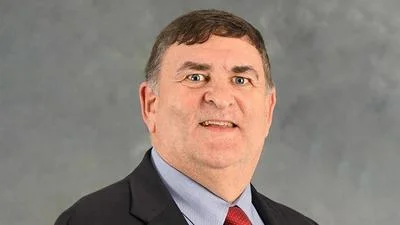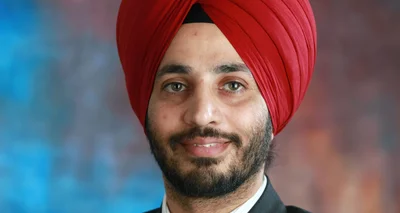City of Carbondale Liquor Advisory Board Met July 19.
Here is the minutes provided by the board:
The City of Carbondale’s Liquor Advisory Board held a meeting in Room 103 of Carbondale City Hall, 200 South Illinois Avenue. Chair Donald Monty called the meeting to order at 2:03 p.m. with the following-named members of the Board present/absent:
1. Roll Call
Present: John Mills, Mark Robinson, Tasis Karayiannis, and Don Monty
Absent: Steve Payne (Three Vacancies)
A quorum was available to take action on the agenda items. City Staff present for the meeting included City Clerk Jennifer Sorrell, Lieutenant Anthony Williams, Community Development Manager John Lenzini, and City Attorney Jamie Snyder,
2. Approval of Minutes from the L.A.B. Meeting of March 5, 2020
J. Mills moved, T. Karayiannis seconded, to approve the minutes of the L.A.B. meeting of March 5, 2020. VOTE: All voted aye; motion declared carried.
3. Election of Chair and Vice-Chair
John Mills nominated Don Monty as Chair and Mark Robinson as Vice Chair.
J. Mills moved, T. Karayiannis seconded, to elect Don Monty as Chair and Mark Robinson as Vice Chair.
VOTE: All voted aye; motion declared carried.
4. Review and Discussion of Title Two Liquor Code Rewrite
The City Clerk reminded the Board of the purpose of the rewrite of the Liquor Code. Chair Monty noted that he was not able to determine what had been removed from the existing Code with the proposed draft language.
Note from Clerk: Recommendations in bold are by more than one member of the Board.
Control Premises – There was a question about the areas of responsibility for a license holder extending into public property. The City Attorney stated that arguably it could extend to publically-owned property if it can be determined the action was by one of the licensee’s patrons, staff members, or the licensee themselves. The Clerk noted that continued patterns of behavior which demonstrate that the licensee is not attempting to manage their patrons’ behavior in the control premises could be considered as a factor when considering renewal applications.
Private Function – There was a question about whether the definition of Private Function would prohibit gatherings of over 50. The Board recommended adding clarifying language to this definition.
It was suggested that the definitions of primary use and secondary use be included in the definition section in addition to the definitions already defined in the Classification section. The Clerk explained that several definitions had been removed. Historically, the Codes were overwritten and very detailed, but there are few people who read things very closely and cities are starting to write their municipal codes more simply with as little text as possible.
There was a question about the use of laws, rules, and regulation in Section 2-2-1.B. It was suggested that the “two authorized responsible contacts” be added to those who can accept service of process in Section 2-2-3.D.2 and 2-2-3.H. Staff agreed that would be a good addition to the section.
The Board agreed that of the two options identified for Section 2-2-3.F, that Option 2 is clearer for future users of the process and to codify the process to ensure consistent application as changes occur in staff and elected officials. There was a suggestion to add Step 4 in Option 2 which addressed the matter of the issuance of an Order.
A question about how the bond referenced in 2-2-3.I is handled. The City Attorney explained that the payment is placed in an escrow account until the conclusion of any appeal. There was a suggestion to add language explaining that the summary suspension referenced in 2-2-3.H for nonpayment of fines and fees is not subject to the evidentiary hearing provided for in 2-2-3.B.
There was a suggestion to add clarifying language in 2-2-3.J, specifically, “In any case in which a licensee appeals a suspension or revocation by the Local Liquor Control Commission that is the appeal of a second or subsequent suspension or revocation….”. The City Attorney indicated that he would like to make the section clearer, but as the language is specifically part of the State Code, it may be struck down. The Board asked about the status of appeals of revocations.
CHAPTER THREE – LIQUOR ADVISORY BOARD
2-3-2: Members; Qualifications; Terms
B. Student members – The Board remarked on how challenging it has been to fill these vacancies and that more often than not, those appointees failed to attend the meetings. The Board suggested reducing the two student appointments to one appointment. It was noted that these positions were established to provide opportunities for student input on the subject of alcohol, but that has been less of an interest with fewer students and with the students of today having less of an interest in alcohol. L.A.B. – recommendation to limit the student positions to one.
2-3-3: Powers and Duties of the Liquor Advisory Board – The Board indicated that they have an issue with providing an advisory opinion on renewal applications only, per subsection B. It was noted that the change in the Powers and Duties was to expedite the issuance of an initial license. The Board asked that the amended language be reconsidered so that the L.A.B. could conduct a review of all liquor licenses, new and renewal. Further, it was suggested that 2-3-3.F be amended to provide for Board review of proposed revisions of the Code pertaining to alcoholic liquor and make recommendations on such proposed revisions.
CHAPTER FOUR – APPLICATIONS AND LICENSING
Mark Robinson exited at 2:56 p.m.
2-4-3: Application – There was a suggestion to remove “in writing” from subsection A: Form; Procedure, noting that handwritten applications are often illegible. The Clerk noted that a fillable PDF is available to applicants and that by and large, the majority of applications are now completed online.
2-4-3.D.5 – there was a question about whether “other sources” of anticipated gross revenue had to be itemized or broken out by category.
2-4-3.D.6 – there was a question about whether the language should also include video gaming; it was noted that video gaming is included as part of “entertainment”.
The Board noted that they had asked for the inclusion or addition a business plan and/or a more detailed financial plan, noting that this had long been a request from the Board. Staff noted that this had been discussed, but there were concerns expressed about it being a possible barrier to entry for individuals. Suggested language was “A detailed financial plan shall be submitted. The plan shall include specific sources of income to finance the business construction, startup, and operation and the various expenses therefor. The plan shall include the first year of operation. The financial plan shall be considered as confidential and only reviewed by Staff processing the application and member of the Liquor Control Commission.” It was noted that 2-4-5.C.3 includes as a criterion for determining whether an application should be approved, the “sufficient financial assets to maintain the proposed liquor establishment” are a factor. Without a financial plan, how is the Commission to make that determination? It was noted that the Board has seen from experience who have no idea what it will cost them to operate and that sets them up for failure. Further, the availability of resources at the University, such as the Small Business Development Center, which could provide such assistance. The Board recommended the requirement to include such a financial plan.
2-4-4 – Ineligibility for License – There was a suggestion to combine both Option 1 and Option 2.
2-4-7: Liquor License Classifications and Fees – there was a request for a listing of the current licensed facilities and which new classification each would fall under. The Clerk stated that she did have a listing, but it was not presently available.
2-4-7.A.1 - On-Premises Consumption – it was noted that there was an asterisk by the entry age of 19; this was due to the Carbondale Music Advisory Committee’s recommendation to lower the entry age to 18 years of age, which has not yet been taken up by the City Council. Further, the proposed Entertainment District Ordinance also provided for an entry age of 18.
2-4-7.A.3 – On-Premises Restaurant – there was a remark about the minimum percentage of sales of nonalcoholic beverages and food is not yet determined; the current required percentage is 51%. There was also a question about how video gaming revenues would impact the minimum percentages.
2-4-7.D.2 – Temporary Event Licenses – there was general discussion about how this classification might be utilized during community events, SIU events, and allowing for sponsorships of those events.
2-4-7.E - Temporary Event Modification – examples of the currently existing modifications were provided.
2-4-7.E.3 - Alcohol Free Night – there was a suggestion to change “Chair” to Chair of the Local Liquor Control Commission.
2-4-7.E.4 - Under Age/All Age Temporary Permit – of the two options of fourteen or sixteen, the Board consensus was for the age of sixteen.
5. Citizens’ Comments
The Board members present indicated their general availability. The goal is to meet in the first week of August.
6. Adjournment
Meeting adjourned at 3:56 p.m.
https://explorecarbondale.com/AgendaCenter/ViewFile/Minutes/_07192021-1464





 Alerts Sign-up
Alerts Sign-up